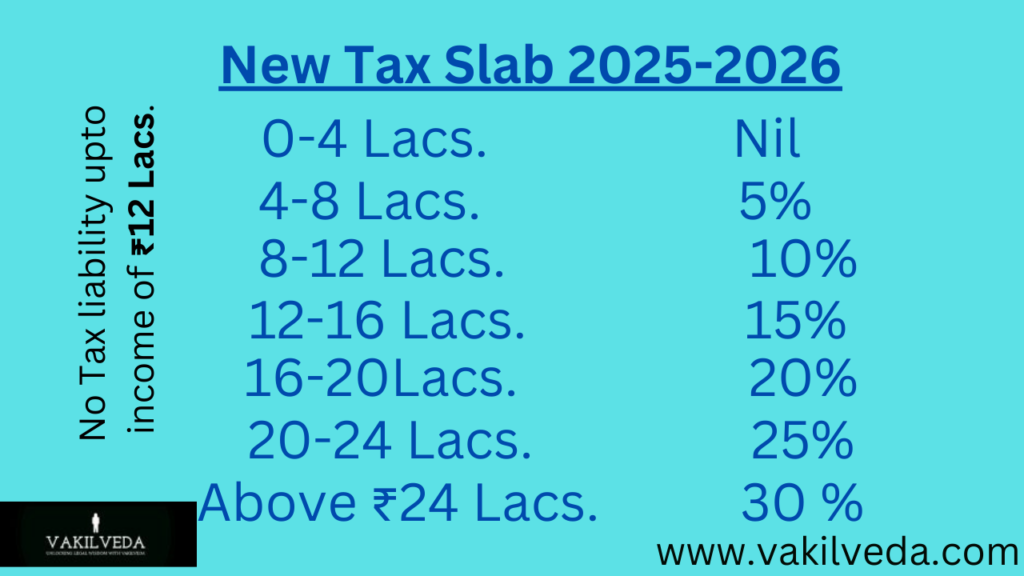
Union Finance Minister Nirmala Sitharaman presented the Union Budget 2025-26 in the Lok Sabha during the Budget session of the Parliament on February 1, 2025. In her 8th consecutive Union Budget, she focused on four engines- Agriculture, MSME, Investment, and Exports, to drive the goal of Viksit Bharat. Ms Sitharaman has announced that individuals earning up to ₹12 lahks (Excluding standard deduction) annually will not have to pay any income tax under the new tax regime.
Article- 112, Constitution of India- Annual financial statement
- The President shall in respect of every financial year cause to be laid before both the Houses of Parliament a statement of the estimated receipts and expenditure of the Government of India for that year, in this Part referred to as the “annual financial statement”.
- The estimates of expenditure embodied in the annual financial statement shall show separately-
- the sums required to meet expenditure described by this Constitution as expenditure charged upon the Consolidated Fund of India; and
- the sums required to meet other expenditure proposed to be made from the Consolidated Fund of India,
and shall distinguish expenditure on revenue account from other expenditure.
3. The following expenditure shall be expenditure charged on the Consolidated Fund of India-
a. the emoluments and allowances of the President and other expenditure relating to his office;
b. the salaries and allowances of the Chairman and the Deputy Chairman of the Council of States and the Speaker and the Deputy Speaker of the House of the People;
c. debt charges for which the Government of India is liable including interest, sinking fund charges and redemption charges, and other expenditure relating to the raising of loans and the service and redemption of debt;
d. (I) the salaries, allowances and pensions payable to or in respect of Judges of the Supreme Court,
(ii) the pensions payable to or in respect of Judges of the Federal Court
(iii), the pensions payable to or in respect of Judges of any High Court which exercises jurisdiction in relation to any area included in the territory of India or which at any time before the commencement of this Constitution exercises jurisdiction in relation to any area included in a Governor’s Province of the Dominion of India;
e. the salary, allowances and pension payable to or in respect of the Comptroller and Auditor- General of India;
f. any sums required to satisfy any judgment, decree or award of any court or arbitral tribunal;
g. any other expenditure declared by this Constitution or by Parliament by law to be so charged.
The new Income Tax law-
Finance Minister Nirmala Sitharaman told the House that she would introduce the new Income Tax Law next week. The new bill will replace the age-old income tax law if it is approved by parliament. The new taxation law is expected to overhaul the present Income Tax Law.
The Key Highlights of the Budget-
- Individuals earning up to ₹12 lakh (Excluding standard deduction) annually will have zero tax liability under the new tax regime.
- The Senior Citizens TDS interest Deduction limit has been raised from ₹50,000/- to ₹1,00,000/-.
- The Nuclear Energy Mission will be launched with the goal of developing at least 100GW of nuclear energy by 2047. This will involve the PPP (Public Private Partnership) model. To this end, amendments will be made to the Atomic Energy Act and the Civil Liability for Nuclear Damage Act.
- FDI (Foreign Direct Investment) in the Insurance Sector has been hiked from 74% to 100%.
- 50,000 Atal Tinkering Labs will be set up in government schools over the next five years to “foster scientific temper among young minds.”
- The credit limit of the Kisan Credit Card (KCC) has been increased from ₹3 Lakhs to ₹5 Lakhs.
- The government will launch the Export Support Mission with sectoral and ministerial targets. It will be driven jointly by the ministries of commerce, MSMEs, and finance.
- Infusion of ₹20,000 crore to increase tourism-led employment. It is expected to accelerate tourism in several states that house top tourist locations build infrastructure and boost connectivity.
- Rs 20,000 crore has been allocated to support private sector-driven research in the Education sector.
Also Read- 1. Joint Parliamentary Committee Report on Waqf Amendment Bill, 2024
2. Afghanistan Government to revoke licence of NGO’s employing women
New Tax Slab-

For more details, Click Here.



Ideal variant